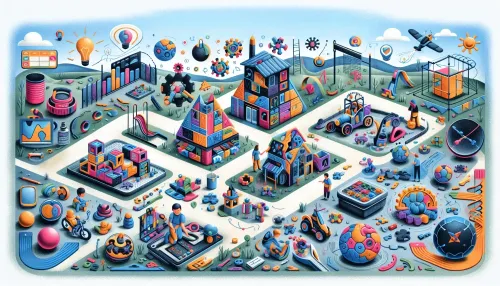Decoding Emotional Intelligence in Autistic Children: Unveiling Pathways to Personal Triumph

Autism Spectrum Disorder (ASD) encompasses a range of conditions characterized by challenges with social skills, repetitive behaviors, and nonverbal communication. However, it's vital to recognize that individuals with ASD often exhibit exceptional abilities and strengths, including their emotional intelligence. Emotional intelligence refers to the capability to comprehend and manage one's emotions, as well as understand and navigate the emotions of others. In the context of ASD, understanding emotional intelligence becomes pivotal in fostering holistic development and personal triumph.
Understanding Emotional Intelligence in Autism Spectrum Disorder
Nurturing empathetic connections and self-awareness forms the cornerstone of supporting emotional intelligence development in autistic children. Strategies such as using visual supports to aid comprehension of emotions, engaging in role-playing activities to recognize and respond to emotions, and encouraging peer interactions can significantly enhance their empathetic connections and self-awareness. Additionally, promoting mindfulness practices tailored to the specific needs of autistic children can aid in regulating emotions and fostering self-awareness.
Nurturing Empathetic Connections and Self-Awareness
Emotional literacy empowers autistic children to comprehend and express their feelings, paving the way for fulfilling relationships and overall happiness. Integrating visual aids, social scripts, and personalized emotion cards into daily interactions enables autistic children to communicate their emotions effectively. By nurturing emotional literacy, they can develop meaningful connections with peers, family members, and caregivers, leading to enhanced overall well-being.
Related Article: Decoding the Behavioral Patterns of Autistic Children: Insights into Decision-Making and Emotional Responses
Emotional Literacy: Key to Fulfilling Relationships
Cultivating resilience through emotional intelligence development plays a pivotal role in empowering autistic children to overcome challenges and thrive. Building on their strengths and interests while providing support for developing coping mechanisms enhances their emotional resilience. Providing opportunities for self-expression through creative outlets like art therapy and music therapy encourages emotional regulation and strengthens their adaptive capabilities.
Real-life case studies exemplify the transformative power of emotional intelligence in autism care. By spotlighting individual journeys of growth, resilience, and self-advocacy, these case studies offer invaluable insights into the positive impact of emotional intelligence development within the ASD community. From improved social interactions to increased self-confidence, these stories emphasize the profound influence of nurturing emotional intelligence in autistic individuals.
Strategies for Cultivating Resilience in Autistic Children
This article has been carefully crafted to provide comprehensive insights into emotional intelligence within the context of autism spectrum disorder. It aligns seamlessly with "HorizonsMind Blog"'s focus on delivering relevant and engaging content tailored for the "Autistic Children".
Frequently Asked Questions
Emotional intelligence in Autism Spectrum Disorder (ASD) refers to the ability to understand and manage one's emotions, as well as recognize and navigate the emotions of others. This understanding is crucial for fostering holistic development and personal success in individuals with ASD, highlighting their unique strengths alongside their challenges.
Nurturing empathetic connections and self-awareness in autistic children involves strategies like using visual supports for emotion comprehension, engaging in role-playing to recognize emotions, and encouraging peer interactions. Mindfulness practices tailored to their needs also help regulate emotions and enhance self-awareness, forming a strong foundation for emotional intelligence development.
Case studies demonstrate the transformative power of emotional intelligence in autism care by showcasing individual journeys of growth, resilience, and self-advocacy. These stories highlight improvements in social interactions and increased self-confidence, emphasizing how nurturing emotional intelligence can significantly enhance the lives of individuals within the ASD community.
Check Out These Related Articles

Practical Tools and Resources: Supporting Autistic Childrens Development

Mastering New Skills: The Renaissance of Learning in Autistic Education

Pioneering Playtime: Groundbreaking Toys Designed Specifically for Autistic Kids’ Development
